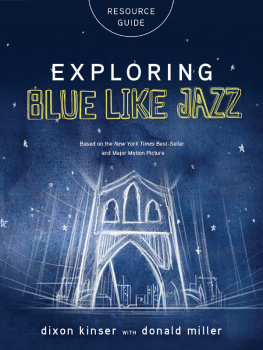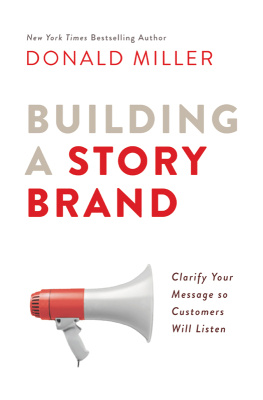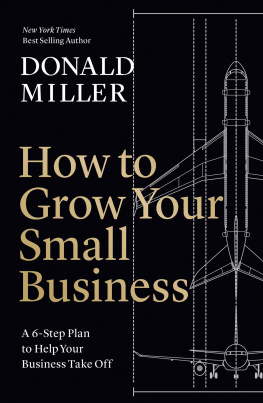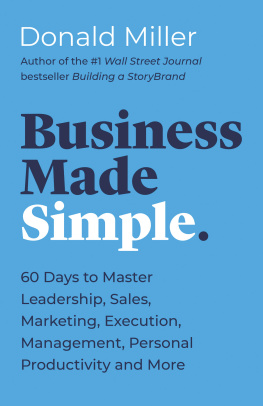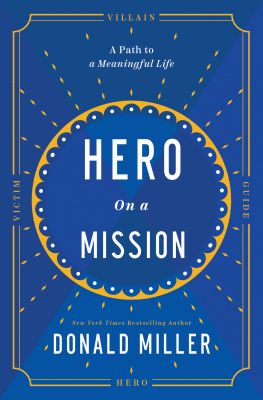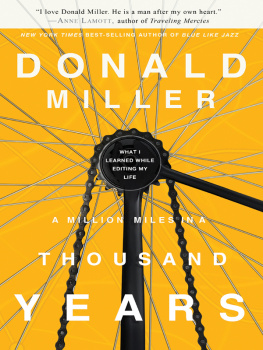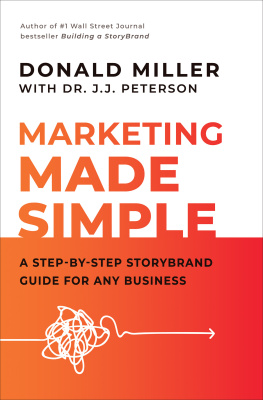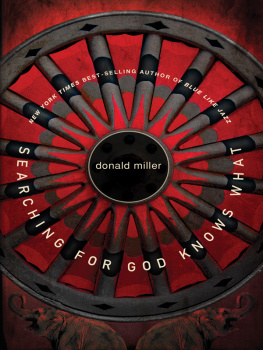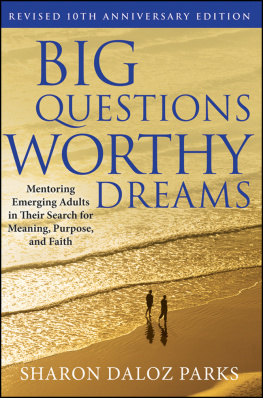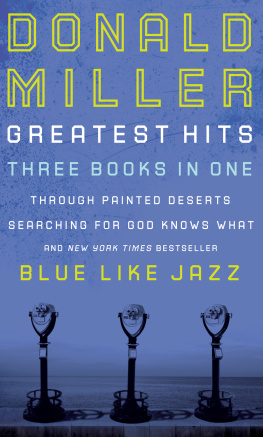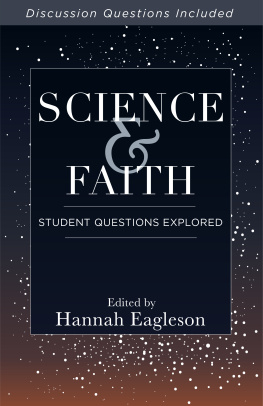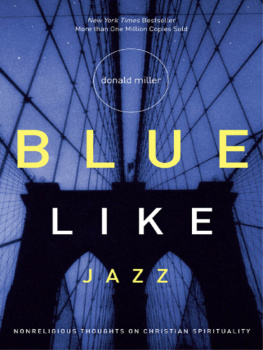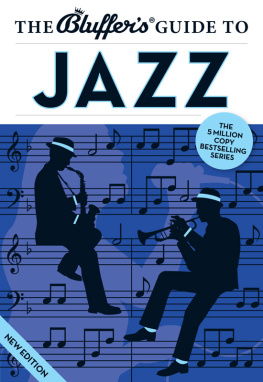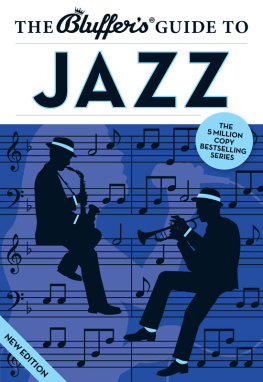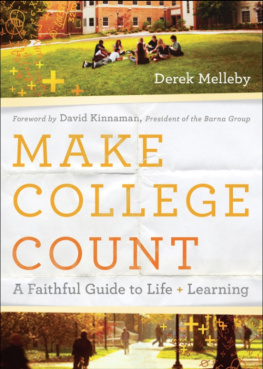
EXPLORING
BLUE LIKE JAZZ
dixon kinser WITH donald miller
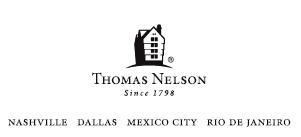
2012 by Donald Miller
All rights reserved. No portion of this book may be reproduced, stored in a retrieval system, or transmitted in any form or by any meanselectronic, mechanical, photocopy, recording, scanning, or otherexcept for brief quotations in critical reviews or articles, without the prior written permission of the publisher.
Published in Nashville, Tennessee, by Thomas Nelson. Thomas Nelson is a registered trademark of Thomas Nelson, Inc.
Thomas Nelson, Inc., titles may be purchased in bulk for educational, business, fund-raising, or sales promotional use. For information, please e-mail SpecialMarkets@ThomasNelson.com.
[Unless otherwise noted, Scripture quotations are taken from The Voice, 2012 by Ecclesia Bible Society. Used by permission. All rights reserved.]
ISBN: 9781418549534
Printed in the United States of America
12 13 14 15 16 QG 6 5 4 3 2 1
CONTENTS
Many years ago I wrote the book Blue Like Jazz and Im thankful. It was then and it is now a message in a bottle, a little letter thrown into the ocean in hopes there would be somebody whose story was similar. What I didnt know, and what I never expected, was to receive a million bottles containing similar letters in return. It seems we arent alone at being alone, as the artist Sting has said.
And yet we go on believing, in some way, we are alone. We believe we are the only ones who struggle with unrequited love, with the desire to numb ourselves and check out. We believe we are the only ones who feel marginalized and unwanted, or who pine for sex, both appropriate sex and inappropriate sex.
One of the things that makes us feel most alone is when others do not acknowledge their own humanness. By humanness Im talking about the reality of our condition, both beautiful and brutal. When others sit with us and pretend they are good, when truthfully they are both good and bad, we feel more alone in their company. This book is a book about not being alone.
Blue Like Jazz, as a movie, is about community. Its about a group of very diverse friends making their way through the world. Its a movie about the reality of life as it exists in transition, specifically the transition from high school to college. This transition is important because in our culture its the time when people are leaving their previous selves and moving into a self of their own making. The transition to college is about making decisions, what to wear, what to drink, with whom and whether to have sex, and what to believe.
This book is a book about making plans and having a strategy during that transition. Im all for living in the moment, but reactionary living almost never works. Few teams win games by trying hard. They win games because they have a plan and they execute that plan. In this transition of our lives, the transition into finding ourselves, there are plenty of people who have a plan for you. The church has a plan for your soul, credit card companies have a plan your money, members of the opposite sex have a plan for your body. But whats your plan? And how will you know, when it comes time to make decisions whether or not their plan and your plan are the same? If you dont know, I promise, youll be unknowingly stepping into their plan. And youll never find yourself that way.
Take a group with you on this journey. Create a plan for yourself and walk with others as they create a plan for themselves.
Donald Miller Author of
Blue like Jazz
When I was a kid there was a country in Eastern Europe called Yugoslavia. I knew Yugoslavia mainly for their comically bad exporta sedan called the Yugo. But chances are you have never heard of this country. Thats because Yugoslavia doesnt exist anymore. Sure, the space on the map where it used to be is still there. It didnt get blown up or consumed by the earth or anything like that. Its just that now what was once Yugoslavia has been divided up into about a half dozen other nations. What used to look one way on the map now looks very differentnot because the space on the globe has changed but because the boundary lines have.
This is precisely what has happened in the past two decades to the simple process of growing up. The timetable between childhood and adulthood has shifted dramatically. Not because the space on the map is different, but because boundary lines are. Ages eighteen to thirty still exist. Though we havent started to lose or gain years on our lives, reaching full adulthood is a little trickier than its ever been. For some, this is cause for alarm. For others, indifference. Personally, I find this hopeful. There are some very specific reasons why all this is happening, but to understand them, we have to start where it all beginsadolescence.
Welcome to the DesertYoure Gonna Love It
Did you know that the concept of adolescence doesnt exist in most cultures and that its only been around for about a hundred years in our own? For much of human history, the transition between childhood and adulthood was swift and abrupt and had a steep learning curve. One day you were a kid in your parents home with fairly domestic responsibilities, and the next you were married or working in a factoryor both. However, significant social changes around the turn of the twentieth century (like the introduction of child labor laws, universal schooling mandates, and the advent of public education) created a gap between the onset of puberty and full adult autonomy. Suddenly there was this prolonged dependence between children and their families where so-called teenagers could develop psychologically outside of the pressure of survival and manual labor. This space gave birth to a new stage of life called adolescence. Psychologist Stanley Hall is largely credited with discovering adolesence in 1904, but he really didnt discover anything. Hall simply observed a developmental phenomenon that was happening right under everyones noses, and a hundred years later, its happening again.
Our culture uses four benchmarks to indicate the end of adolescence and the beginning of full adulthood:
Thats right, like adolescence a century ago, emerging adulthood is a new developmental concept. It describes the phase of life between the end of adolescence (circa eighteen years old) and the beginning of full adulthood (circa thirty years old), and includes more than forty million people in the United States alone. However, like each of the phases of life that have come before it, emerging adulthood is the result of many factors (biological, cultural, institutional, and economic). Therefore, the duration of this will be a different experience for everyone. And theres the rub.
Growing up is harder than it used to be.
Because emerging adulthood is new space on the human developmental map, there are no well-worn trails or tried-and-true strategies to get through it. Not anymore. This causes many emerging adults (EAs) a certain amount of anxiety. I hear it all the time from the young people I work with, and it comes out in sentiments like, I just really thought Id have fill in the blank by the time I was twenty-five or, I always thought Id be married by this age. And when you think about it, their incredulity is understandable because, for most people, there is a pretty predictable formula for how life will unfold through adolescence. You go to middle school and practice getting good grades so that when youre in high school (and grades start counting) you have developed the right kind of study habits so you can take the right number of AP classes and get the best marks so that those grades, when coupled with your extracurricular activities, will position you to get into a superior college, that you will attend with the scholarship money youve earned, and then after you graduate youll... well, uh, now it starts getting kind of fuzzy. What happens next? Whats
Next page
